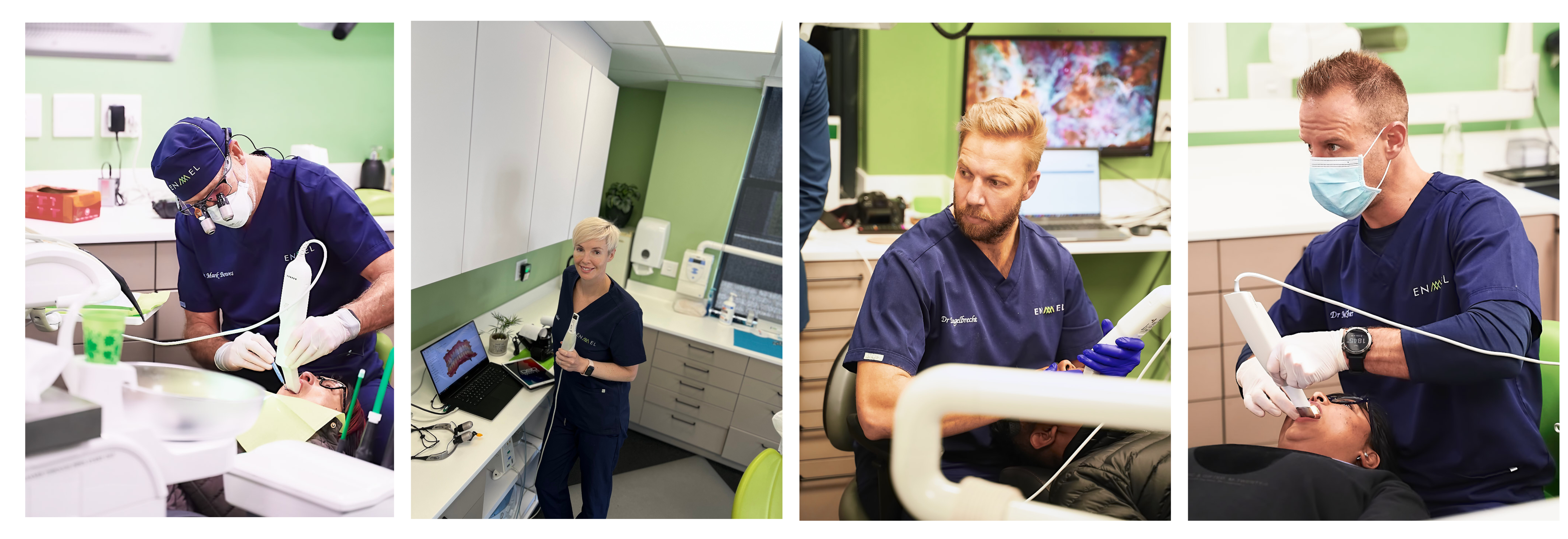A healthy and beautiful smile is an invaluable asset, boosting confidence and overall well-being. However, various factors like decay, trauma, or wear and tear can damage teeth, compromising both aesthetics and functionality. This is where restorative dentistry comes into play, offering a range of treatments to repair, restore, and enhance smiles.
Understanding Restorative Dentistry
Restorative dentistry is a specialized branch of dental care that focuses on diagnosing and treating oral health issues that affect the structure and function of teeth. It aims to rehabilitate damaged teeth, improve oral functionality, and enhance the overall appearance of the smile. This encompasses various procedures, ranging from simple fillings and crowns to more complex treatments like dental implants and full-mouth reconstruction.
Restorative vs Cosmetic Dentistry
These are often confused.
The main purpose of restorative dentistry is to restore function, while the purpose of cosmetic dentistry is to improve visual appearance. Restorative dental treatments focus on restoring decayed, damaged, or missing teeth in order to maintain proper function and oral health.
Tooth Wear

One of the most common candidates for dental restoration is tooth wear, which is the gradual loss of tooth structure over time. This can lead to a range of dental problems, such as sensitivity, cracks, chips, and decay, and negatively affects the aesthetics and general function of your teeth. Types of tooth wear include:
Attrition – when teeth wear down due to natural chewing and grinding.
Abrasion – when tooth enamel is worn down due to external factors such as brushing too hard.
Erosion – when tooth enamel is lost due to exposure to acidic substances, such as acidic foods and drinks or gastric acid.
One of the main objectives of restorative dentistry is treating the effects of damaged or weakened enamel. The enamel of the teeth is integral for both aesthetics and function.
Common Restorative Procedures

At Enamel Clinic, we believe our role as dental practitioners is not only to repair, but also to help our patients maintain their oral health. We do this by encouraging regular dental checkups and cleanings, and advice on proper home-based oral care. Sometimes, however, the need for more significant intervention arises. Some common restorative procedures are:
Fillings: Dental fillings are used to repair teeth affected by cavities or minor damage. They involve removing the decayed portion of the tooth and filling the space with a durable material like composite resin or porcelain, restoring both function and aesthetics.
Dental Crowns: Crowns are tooth-shaped caps placed over damaged or weakened teeth to protect them and restore their shape, size, strength, and appearance.
Dental Bridges: Bridges are used to replace missing teeth. They consist of one or more artificial teeth, known as pontics, held in place by crowns on adjacent teeth. Bridges restore the ability to chew and speak properly while improving the overall appearance of the smile.
Dental Implants: Implants are a highly effective long-term solution for missing teeth. They involve surgically placing artificial tooth roots made of titanium into the jawbone, providing a stable foundation for the attachment of custom-made crowns.
Root Canal Treatment: This procedure involves removing damaged dental pulp, cleaning and disinfecting the root canal, and filling it with a biocompatible material. Root canal therapy saves the natural tooth from extraction and alleviates pain caused by infection.
Full Mouth Rehabilitation

A full mouth rehabilitation aims to restore your oral health and function with beautiful, long-lasting, and natural-looking restorations. We do this using a combination of treatments carried out by a team of experts, depending on the specific needs of your case.
At Enamel Clinic, we have a true multi-disciplinary team under one roof, and together with the best technology and Digital Smile Design (DSD) we guarantee the best outcome.
Why consider Dental Restoration?
Restorative dentistry offers numerous benefits beyond just improving the appearance of your smile. By addressing oral health issues promptly, it prevents further damage to teeth and surrounding structures. Restorative treatments enhance oral functionality, allowing you to eat, speak, and smile with confidence.
Moreover, restorative procedures can alleviate pain and discomfort associated with dental problems, improving your overall quality of life. Consult with our team of skilled and experienced restorative dentists to explore the options available to rejuvenate your teeth and regain your confidence.

